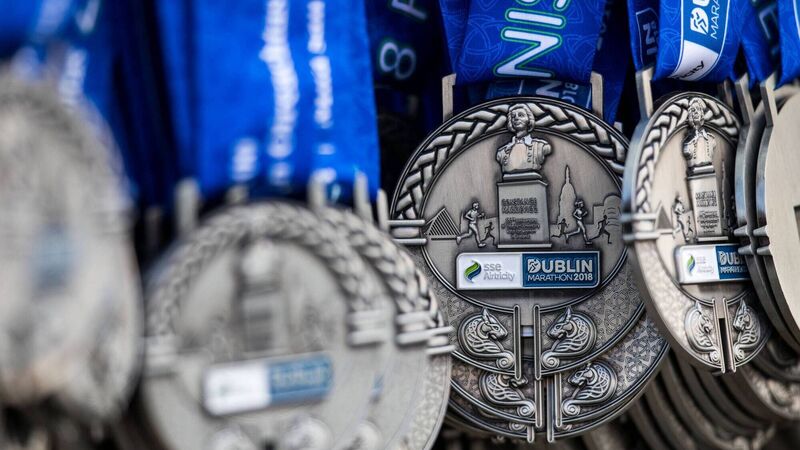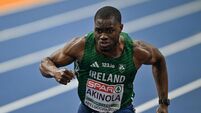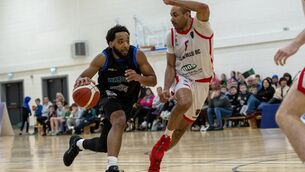Crean taking marathon ambitions one mile at a time

A general view of Dublin Marathon finisher medals. Pic: INPHO/Bryan Keane AR
When Ava Crean lined up for her first ever race, at the Manchester Marathon in May, she didn’t consider it a race, just a run. For the 19-year-old Limerick native, a marathon was a bucket-list goal, one she’d written in a letter to her future self when enrolling at University Academy 92 in Manchester last year – which was co-founded by members of Man United’s Class of ’92.
Crean hadn’t a notion about times so on the entry site, she listed 3:30 as her target. “I remember seeing influencers who were [running] over three hours and seeing the sessions they were doing and I was like, ‘I’m not doing anything like that, I’m just going out, enjoying running.’ But then with the adrenaline and the crowd, I was like, ‘This is so fun.’ I did 2:49 and was like, ‘What the heck?’” She had signed up for another marathon just a week later at the Great Limerick Run and figured she’d just run easy there. But as each kilometre ticked by, the wall just never appeared. Crean won the women’s title in 2:43:38. Heading into tomorrow’s Irish Life Dublin Marathon, it makes her one of the more unlikely contenders for a national medal.











